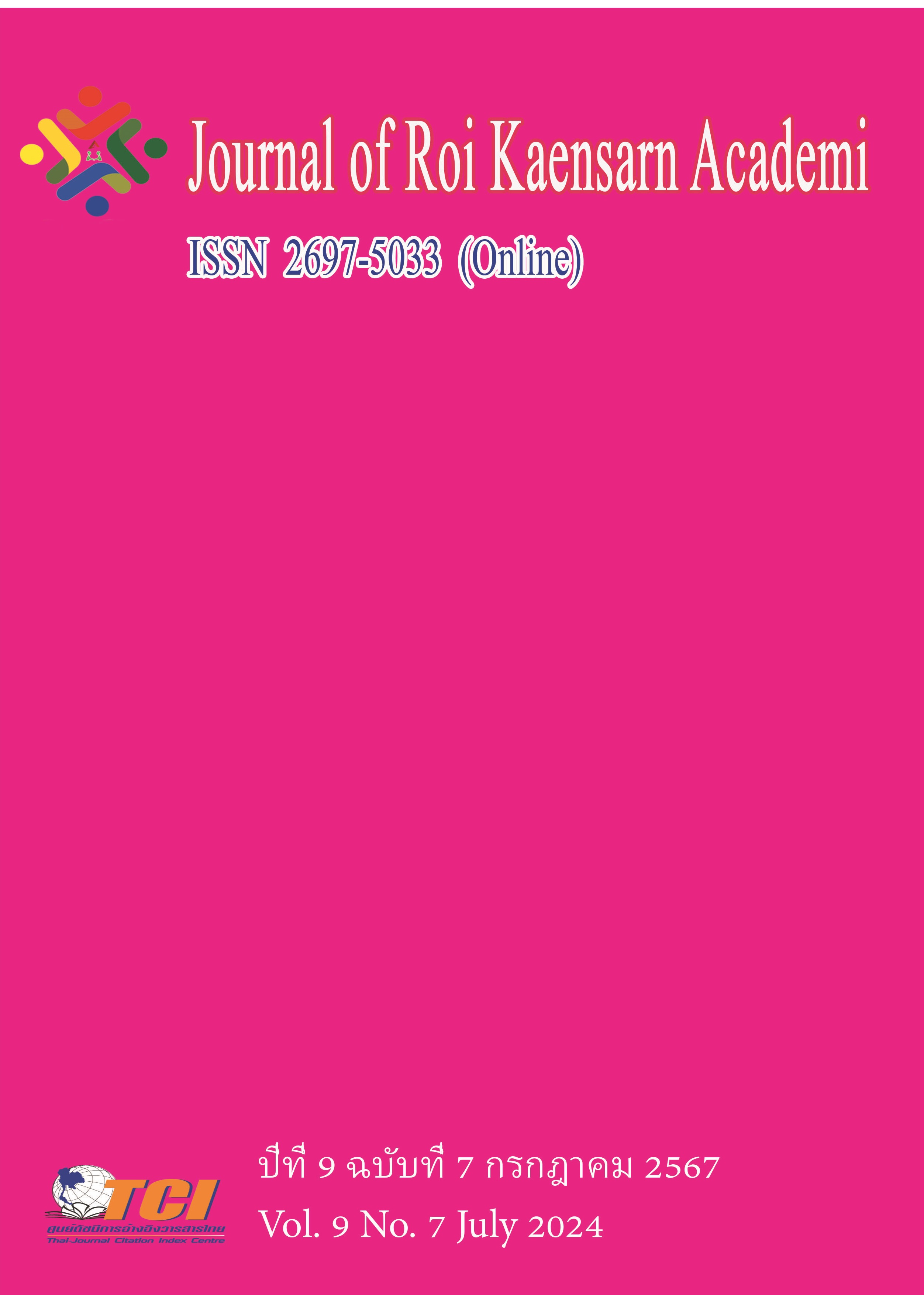The Impact of Entrepreneurial Self-Efficacy on Entrepreneurial Intention of College Students in Henan Province of China: A Study of Mediating Role of Entrepreneurial Attitudes
Main Article Content
บทคัดย่อ
Purpose: This study aims to explore the impact of self-efficacy on entrepreneurial intention among college students in Henan Province, China, and examine the mediating role of entrepreneurial attitude. Methods: Quantitative analysis was employed in this study. A total of 1351 participants were selected through cluster sampling. The data collected were processed using SPSS 25.0 and Process 3.5, including the removal of invalid questionnaires and adjustment of missing values and outliers. Harman's single-factor test was conducted to examine the common method bias, while reliability, validity, and the mediating effect in Process were also assessed. Results: The analysis of the data revealed that the correlation coefficient between self-efficacy and entrepreneurial attitude was 0.238 (p<0.01), and the correlation coefficient between self-efficacy and entrepreneurial intention was 0.282 (p<0.01). Additionally, the correlation coefficient between entrepreneurial attitude and entrepreneurial intention was 0.211 (p<0.01). Tests of the mediating effects of self-efficacy, entrepreneurial attitude, and entrepreneurial intention showed that self-efficacy significantly predicted entrepreneurial intention. Furthermore, even after incorporating the mediating variable of entrepreneurial attitude, self-efficacy continued to predict entrepreneurial intention. Conclusion: There is a significant positive correlation among self-efficacy, entrepreneurial attitude, and entrepreneurial intention among college students in Henan Province, China. Entrepreneurial attitude plays a mediating role between self-efficacy and entrepreneurial intention. Based on the data results in Table 7, the mean values of self-efficacy, entrepreneurial attitude, and entrepreneurial intention were 3.225, 3.196, and 3.181, respectively, with standard deviations of 1.019, 0.917, and 0.935. The correlation analysis results indicated that the correlation coefficient between self-efficacy and entrepreneurial attitude was 0.238 (p<0.01), and the correlation coefficient between self-efficacy and entrepreneurial intention was 0.282 (p<0.01). Additionally, the correlation coefficient between entrepreneurial attitude and entrepreneurial intention was 0.211 (p<0.01).
Article Details
เอกสารอ้างอิง
Han, H. (2024). Analysis of the impact of entrepreneurship education on college students' employment competitiveness. Science and Education. (06), 7-10.
Li, H. (2023). Research on the relationship between college students' learning ability and entrepreneurial behavior: The role of entrepreneurial self-efficacy and optimism. Journal of Guilin Normal College. 37 (06), 43-52.
Wang, Y., & Ding, F. (2023). The impact of entrepreneurial self-efficacy on college students' entrepreneurial intention. Journal of Xinyang Normal University (Philosophy and Social Sciences Edition). 43 (01), 77-82.
Jiao, W., Liu, X., & Wei, J. (2021). Perceived university support and college students' entrepreneurial intention: The mediating role of entrepreneurial self-efficacy. Journal of Hebei Agricultural University (Social Sciences Edition). 23 (03), 119-126.
Chen, C. C., Greene, P. G., & Crick, A. (1998). Does entrepreneurial self-efficacy distinguish entrepreneurs from managers? Journal of Business Venturing. 13, 295-316.
Jill, K., & Robert, S. D. (2005). Measure for measure: Modeling entrepreneurial self-efficacy onto instrumental tasks within the new venture creation process. New England Journal of Entrepreneurship. 8 (2), 39-47.
Xue, H. (2022). The influence of college students' self-efficacy on sports autonomous learning ability: The mediating role of fitness equipment [Unpublished master's thesis]. Shenyang Normal University.
Zhou, W., & Tang, Q. (2018). Research on the influencing factors of college students' entrepreneurial intention under the background of mass innovation. Youth and Society: Part 2, (11), 3.
Xiang, C., & Lei, J. (2011). The relationship and influencing factors of college students' entrepreneurial attitude and tendency - A study of Tsinghua University students. Tsinghua University Education Research. (5), 9.
Gao, L. (2024). Research on the influence of entrepreneurship education and entrepreneurial opportunity identification ability on college students' entrepreneurial intention [Unpublished doctoral dissertation]. University of Electronic Science and Technology of China.
Shi, S. (2019). Research on statistical test and control methods of common method deviation. Modern Economic Information. (16), 352.
Zhang, X., Wang, C., & Li, S. (2022). Institutional environment, entrepreneurial self-efficacy and entrepreneurial intention. Scientific Research Management. 43 (05), 59-66.
Wang, Y., & Ding, F. (2023). The influence of entrepreneurial self-efficacy on college students' entrepreneurial intention. Journal of Xinyang Normal University (Philosophy and Social Sciences Edition). 43 (01), 77-82.
Xue, Y., Chen, Y., & Deng, Y. (2021). Research on influencing factors and improvement strategies of college students' entrepreneurial intention - Based on a questionnaire survey of college students in 14 universities in Guangdong Province. Science and Technology Entrepreneurship Monthly. 34 (09), 139-146.

